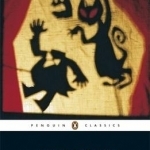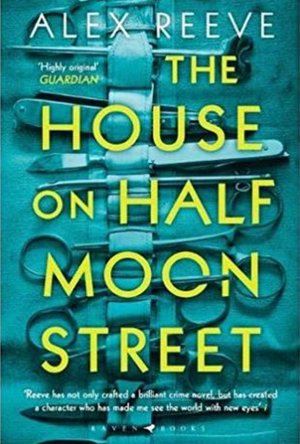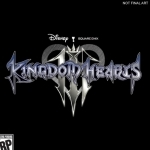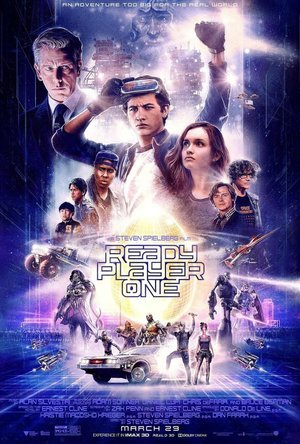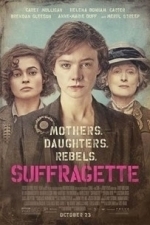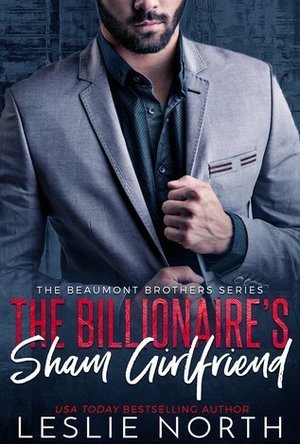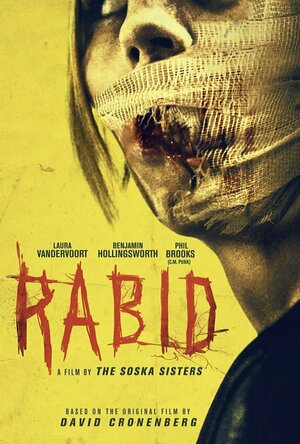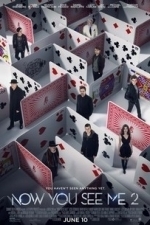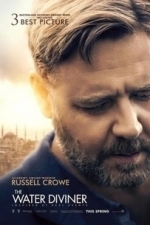Search
Search results
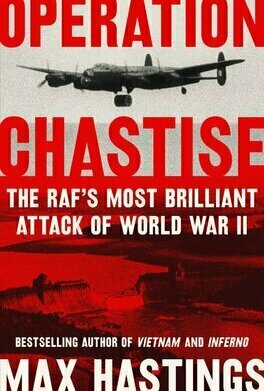
Operation Chastise: The RAF's Most Brilliant Attack of World War II
Book
The attack on Nazi Germany’s dams on May 17, 1943, was one of the most remarkable feats in...
Sass Perilla (36 KP) rated The Master and Margarita in Books
Aug 9, 2019
Worth a read? Yes. Worth a reread? Maybe not.
Contains spoilers, click to show
The Master and Magarita: Mikhail Bulgakov
Firstly, I didn’t intend to write an essay on this novel. However, once started I found I had a lot to say, and the more I thought about the plot and characters, the more ideas and parallels were sparked, so I am hopeful that the verbosity of this review can be forgiven.
At the risk of sounding both ignorant and uncultured, I found this novel (at least at first) bloody hard slog; not least because the Russian characters have three names, plus a nickname, plus a pun on their name (none of which work particularly well in translation and all of which sound rather similar to the English untrained ear). As an example- Ivan Nikolaevich Ponyrev (who seems to be referred to by any and all of these names) is also known as “Homeless” and “the poet” is a key character in the opening section of the novel. To further demonstrate: there are 17 different names that start with A that are used to refer to 15 different characters with Andreyevich used as the middle name of a bereaved uncle, who makes a journey from Kiev after his nephew is beheaded in a freak tram accident- and Andrey the buffet manager at a Moscow theatre. Clear as mud right? And that is before starting on similarly named characters with the initials M, P, L and S! At my last count there were 45 distinct characters, and I am fairly sure there will be some that I have missed. Hence, I did a lot of re-reading to work out exactly who was doing what to whom.
Additionally, I would suggest you need to be wary of the different translations. The distinct changes in meaning are subtle but important. To triangulate I had three versions at my disposal: Hugh Aplin’s translation (available for free on Kindle), the audiobook version translated by Richard Pevear and Larissa Volokhonsky (which I listened to simultaneously when reading the book to come to my own interpretation, and the subtitles for the Russian TV miniseries from 2005 when I gave up trying to work out who was who from name alone!
So those were my “technical” issues (if you like) with engaging with this novel, and this lack of clarity and understanding (and my own lack of contextual knowledge of Stalinist Russia) meant I missed many of the (what I am sure are hysterically funny to those in the know) satirical jokes in the opening section. That said, the random action and quick changes of focus, undercurrent of chaos in Moscow despite entrenched hierarchal structures and clear threat that (any) one could go missing at any time, for an unclear reason gave a clear insight into the mind and fears of a 1930s Russian citizen. No wonder it was available only in censored form for so long.
Despite these hardships, there were some genuinely laugh out loud moments in the first Moscow based part of the novel. The citizens have not lost their individuality, as they scrabble and fight for bank notes in the theatre, which are later revealed to be worthless. Nor have they lost their sense of pride and vanity, which we see in the female theatre goers, so desperate to attain the fashionable French couture (which later literally disappears from their bodies leaving semi-naked citizenesses desperately trying to cover themselves in a scene reminiscent of “Allo Allo” meets “Benny Hill”). When Professor Woland says his show will “expose” what the locals have failed to realise is that it is their (moral) shortcomings that are about to be revealed. The message is clearly, that no government can successfully legislate against human nature.
Oooh- and another fun fact, apparently Woland (later revealed- or perhaps is implied- to be Satan) was the inspiration to the Rolling Stones 1968 hit “Sympathy for the Devil”, well at least that is what my Google-Fu tells me.
Obviously, there were substantial hurdles to leap, however, I found by the second half of the novel, when we finally meet the eponymous characters, I had got in to the swing of things and begun to embrace the farcical surrealism of the novel.
The second “book” marks a change in tone, although it continues to cut away to scenes of Jesus’ sentencing by Pilate and execution (here known in the Aramaic form Yeshua). Ironically it is these scenes that are the most “real” and substantially human, as Pilate’s decision weighs head achingly heavily on him throughout. The Master and Margarita seem to be the only two characters fully invested in the authenticity of literature, and serve as a counterpoint to the heavily censored “monstrous” writing of Ivan and the rest of the writers’ union Massolit, more interested in fine dining and what their positions can do for them then the production of quality writing.
And it is Margarita’s journey of discovery and liberation from the stodgy, miserable societal expectations of that leads her back to her Master. Bulgakov mixes classical myth, Russian folklore and Bible stories to give us an impression of the timelessness of the central romance. As the worlds of communist Moscow and the inner worlds of the Master and Margarita collide, we are informed of the former’s desire to excuse all magic (and mischief) as the product of mass hypnosis, when the latter (and the reader) are fully aware of the spiritual significance and dimension of the events.
Clever, astute and in places laugh out loud funny, this novel none-the-less requires a level of dedication from the non-Russian speaking reader. Worth a read? Yes. Worth a re-read? Maybe not.
Firstly, I didn’t intend to write an essay on this novel. However, once started I found I had a lot to say, and the more I thought about the plot and characters, the more ideas and parallels were sparked, so I am hopeful that the verbosity of this review can be forgiven.
At the risk of sounding both ignorant and uncultured, I found this novel (at least at first) bloody hard slog; not least because the Russian characters have three names, plus a nickname, plus a pun on their name (none of which work particularly well in translation and all of which sound rather similar to the English untrained ear). As an example- Ivan Nikolaevich Ponyrev (who seems to be referred to by any and all of these names) is also known as “Homeless” and “the poet” is a key character in the opening section of the novel. To further demonstrate: there are 17 different names that start with A that are used to refer to 15 different characters with Andreyevich used as the middle name of a bereaved uncle, who makes a journey from Kiev after his nephew is beheaded in a freak tram accident- and Andrey the buffet manager at a Moscow theatre. Clear as mud right? And that is before starting on similarly named characters with the initials M, P, L and S! At my last count there were 45 distinct characters, and I am fairly sure there will be some that I have missed. Hence, I did a lot of re-reading to work out exactly who was doing what to whom.
Additionally, I would suggest you need to be wary of the different translations. The distinct changes in meaning are subtle but important. To triangulate I had three versions at my disposal: Hugh Aplin’s translation (available for free on Kindle), the audiobook version translated by Richard Pevear and Larissa Volokhonsky (which I listened to simultaneously when reading the book to come to my own interpretation, and the subtitles for the Russian TV miniseries from 2005 when I gave up trying to work out who was who from name alone!
So those were my “technical” issues (if you like) with engaging with this novel, and this lack of clarity and understanding (and my own lack of contextual knowledge of Stalinist Russia) meant I missed many of the (what I am sure are hysterically funny to those in the know) satirical jokes in the opening section. That said, the random action and quick changes of focus, undercurrent of chaos in Moscow despite entrenched hierarchal structures and clear threat that (any) one could go missing at any time, for an unclear reason gave a clear insight into the mind and fears of a 1930s Russian citizen. No wonder it was available only in censored form for so long.
Despite these hardships, there were some genuinely laugh out loud moments in the first Moscow based part of the novel. The citizens have not lost their individuality, as they scrabble and fight for bank notes in the theatre, which are later revealed to be worthless. Nor have they lost their sense of pride and vanity, which we see in the female theatre goers, so desperate to attain the fashionable French couture (which later literally disappears from their bodies leaving semi-naked citizenesses desperately trying to cover themselves in a scene reminiscent of “Allo Allo” meets “Benny Hill”). When Professor Woland says his show will “expose” what the locals have failed to realise is that it is their (moral) shortcomings that are about to be revealed. The message is clearly, that no government can successfully legislate against human nature.
Oooh- and another fun fact, apparently Woland (later revealed- or perhaps is implied- to be Satan) was the inspiration to the Rolling Stones 1968 hit “Sympathy for the Devil”, well at least that is what my Google-Fu tells me.
Obviously, there were substantial hurdles to leap, however, I found by the second half of the novel, when we finally meet the eponymous characters, I had got in to the swing of things and begun to embrace the farcical surrealism of the novel.
The second “book” marks a change in tone, although it continues to cut away to scenes of Jesus’ sentencing by Pilate and execution (here known in the Aramaic form Yeshua). Ironically it is these scenes that are the most “real” and substantially human, as Pilate’s decision weighs head achingly heavily on him throughout. The Master and Margarita seem to be the only two characters fully invested in the authenticity of literature, and serve as a counterpoint to the heavily censored “monstrous” writing of Ivan and the rest of the writers’ union Massolit, more interested in fine dining and what their positions can do for them then the production of quality writing.
And it is Margarita’s journey of discovery and liberation from the stodgy, miserable societal expectations of that leads her back to her Master. Bulgakov mixes classical myth, Russian folklore and Bible stories to give us an impression of the timelessness of the central romance. As the worlds of communist Moscow and the inner worlds of the Master and Margarita collide, we are informed of the former’s desire to excuse all magic (and mischief) as the product of mass hypnosis, when the latter (and the reader) are fully aware of the spiritual significance and dimension of the events.
Clever, astute and in places laugh out loud funny, this novel none-the-less requires a level of dedication from the non-Russian speaking reader. Worth a read? Yes. Worth a re-read? Maybe not.
ClareR (6054 KP) rated The House on Half Moon Street in Books
May 3, 2018 (Updated May 3, 2018)
A good period murder mystery.
Leo works as a coroners assistant in a busy Victorian London hospital. Leo lived the first 15 years of his life as Charlotte, and ran away so that he could live as Leo: this is in time where if he were to be discovered, he would be sent to an insane asylum.
Leo falls in love with the prostitute (Maria) that he has been seeing once a week for two years, and arranges to meet her at the theatre for what he hopes will be the first of many dates. He wants to build a life with her. However, she doesn't show up, and he, bitterly disappointed, goes home. When he arrives at work the following day, he discovers the first body on the slab is that of Maria. Of course, he is the primary suspect. So Leo starts his own investigation to try and discover who the murderer is.
Leo is a likeable, yet vulnerable character. He clearly feels very deeply about Maria. The friends and acquaintances he makes in the course of his investigations are personable and try to help him as well as themselves (to be honest, it's hard to see whether they are really his friends at all - they all live hard lives, and just want to get along without causing any trouble to themselves or their families). By the same token, the villains are unlikeable, villainous and uncaring about anything other than what they can get out of people - in this case, they make their money out of women, specifically prostitution.
I really enjoyed this. I didn't think I would. As soon as I read that Leo was transgender, I thought that it would be an attempt at Tipping the Velvet. It's clearly not. I believe this is the first in a new series, and I will be looking out for the next one!
Many thanks to The Pigeonhole and the publisher for a copy of the book!
Leo falls in love with the prostitute (Maria) that he has been seeing once a week for two years, and arranges to meet her at the theatre for what he hopes will be the first of many dates. He wants to build a life with her. However, she doesn't show up, and he, bitterly disappointed, goes home. When he arrives at work the following day, he discovers the first body on the slab is that of Maria. Of course, he is the primary suspect. So Leo starts his own investigation to try and discover who the murderer is.
Leo is a likeable, yet vulnerable character. He clearly feels very deeply about Maria. The friends and acquaintances he makes in the course of his investigations are personable and try to help him as well as themselves (to be honest, it's hard to see whether they are really his friends at all - they all live hard lives, and just want to get along without causing any trouble to themselves or their families). By the same token, the villains are unlikeable, villainous and uncaring about anything other than what they can get out of people - in this case, they make their money out of women, specifically prostitution.
I really enjoyed this. I didn't think I would. As soon as I read that Leo was transgender, I thought that it would be an attempt at Tipping the Velvet. It's clearly not. I believe this is the first in a new series, and I will be looking out for the next one!
Many thanks to The Pigeonhole and the publisher for a copy of the book!
Alanna (227 KP) rated Kingdom Hearts III in Video Games
Feb 19, 2019 (Updated Feb 19, 2019)
Story (1 more)
Worlds feel bigger
Kingdom Hearts 2 was better imo (3 more)
The theme park mechanic is not very interesting
Too many/Too long cutscenes
No Final Fantasy characters
As someone who has played 3 of the previous games I was isanely excited to play this game. Unfortunately, I was quite disappointed. The game does not hold a candle to the second game.
One aspect that made the previous game great is that each enemy had timed reaction attacks that made each and every battle special. For example waiting for one if the organisation's weapon to drop so that you could use it. In this version it felt like a lot more button mashing or using the triangle reactions (which were given out too often) made this an easy game to finish. I only ever found one boss that needed more strategy.
I get that it's a game for all ages, new fans and old but I became annoyed at the cutscenes repeating the information from the last games when there is a theatre in the main menu telling you about the previous games. I found myself becoming impatient during the cutscenes wishing that they would hurry up with the new plot.
I feel like the voicing acting or the pacing of the scenes was slow and unnatural. I really disliked it this time around.
This is more of a personal issue but I was quite upset that they got rid of the final fantasy characters as well. I wouldn't have minded that they were not in any of the cutscenes but at least let them walk around their respective worlds
Otherwise, it is a visually stunning game and I have to applaud Square Enix for their Pirates of the Caribbean world which is my favourite.
If it's your first KH game then I would definitely recommend playing but I believe that KH 2 is better.
One aspect that made the previous game great is that each enemy had timed reaction attacks that made each and every battle special. For example waiting for one if the organisation's weapon to drop so that you could use it. In this version it felt like a lot more button mashing or using the triangle reactions (which were given out too often) made this an easy game to finish. I only ever found one boss that needed more strategy.
I get that it's a game for all ages, new fans and old but I became annoyed at the cutscenes repeating the information from the last games when there is a theatre in the main menu telling you about the previous games. I found myself becoming impatient during the cutscenes wishing that they would hurry up with the new plot.
I feel like the voicing acting or the pacing of the scenes was slow and unnatural. I really disliked it this time around.
This is more of a personal issue but I was quite upset that they got rid of the final fantasy characters as well. I wouldn't have minded that they were not in any of the cutscenes but at least let them walk around their respective worlds
Otherwise, it is a visually stunning game and I have to applaud Square Enix for their Pirates of the Caribbean world which is my favourite.
If it's your first KH game then I would definitely recommend playing but I believe that KH 2 is better.
Damian Sutton (4 KP) rated Ready Player One (2018) in Movies
May 3, 2019
A decent adaptation of a great book
Contains spoilers, click to show
From the get go, I think I'd best say I came to this with a pre-concieved notion that I was going to enjoy it, having read the book several times and having a long term love affair with Steven Spielberg (child of the 80s, so most of my formative years were spent sitting worshipping at the alter of Spielberg and Lucas) so I was aware that I was going to enjoy this film regardless, that said, there are moments in the film that fell flat for me, but on the whole....its a very enjoyable little action/adventure romp....with plenty in it for film lovers (the whole shining sequence had me grinning from ear to ear) and gamers too ( the whole film is deeply rooted in gamer culture and there are more gaming Easter eggs than you can shake a stick at) there's plenty of heart to this film too, and by the time the credits rolled I left the theatre thoroughly entertained, had this film come out a few years back, it would have been lauded as a sci-fi/adventure classic, however we now live in a post marvel world where every film they release seem to raise the bar very high, and films like this get lost in the shuffle a little, does this make it a worse movie....not at all, but it probably didn't get the acclaim it deserved because of being released in a sea of blockbusters.
So in closing, if you're looking for that perfect Sunday afternoon adventure film....you could do a lot worse than giving this a watch....see how many movie/gaming references you can spot
So in closing, if you're looking for that perfect Sunday afternoon adventure film....you could do a lot worse than giving this a watch....see how many movie/gaming references you can spot
Gareth von Kallenbach (980 KP) rated Suffragette (2015) in Movies
Jun 19, 2019
I have read reviews before, that use the words “riveting” and “captivating” and “compelling”…. And usually I sort of just roll my eyes and hope that the movie is as good as the review says, because “usually” I find that the movie doesn’t actually match those words.
Suffragette, on the other hand, is all that, and more.
The movie has Meryl Streep in it, but she doesn’t have very much screen time. As much as I like Meryl Streep, this movie does just fine, all on its own, even with Streep only having a presence on its fringes.
I have not seen any other movies with the actress starring in the film, Carey Mulligan, but based on her performance in this movie, I would definitely be willing to see another.
Suffragette centers around the fight of women in London to be allowed the right to vote. Even trying to write this review, remembering the movie and trying to pull the words out, I get chills and tear up.
It was emotional, and angry, and incredibly sad. Brave and wild, sneaky and smart. Cruel and dangerous.
All of that, in one movie. I spent the last half, crying my eyes out. Quite literally, sobbing in the theatre, trying to not be obvious. The struggles those women faced, were REAL. They sacrificed their ability to work, their families, and their very LIVES to the cause of being treated equally to men, and having equal rights to vote, and equal pay as well.
Suffragette is a movie that everyone should see.
Men, women, children old enough to understand the implications of a struggle that spanned many years, and even today isn’t fully finished. The list at the end, of the countries in the world and when women got the right to vote, and the countries where women are STILL NOT ALLOWED to vote, was breathtaking…. And utterly heartbreaking.
Suffragette shows us how far we have come, and how very far we have yet to go, worldwide.
http://sknr.net/2015/11/06/suffragette/
Suffragette, on the other hand, is all that, and more.
The movie has Meryl Streep in it, but she doesn’t have very much screen time. As much as I like Meryl Streep, this movie does just fine, all on its own, even with Streep only having a presence on its fringes.
I have not seen any other movies with the actress starring in the film, Carey Mulligan, but based on her performance in this movie, I would definitely be willing to see another.
Suffragette centers around the fight of women in London to be allowed the right to vote. Even trying to write this review, remembering the movie and trying to pull the words out, I get chills and tear up.
It was emotional, and angry, and incredibly sad. Brave and wild, sneaky and smart. Cruel and dangerous.
All of that, in one movie. I spent the last half, crying my eyes out. Quite literally, sobbing in the theatre, trying to not be obvious. The struggles those women faced, were REAL. They sacrificed their ability to work, their families, and their very LIVES to the cause of being treated equally to men, and having equal rights to vote, and equal pay as well.
Suffragette is a movie that everyone should see.
Men, women, children old enough to understand the implications of a struggle that spanned many years, and even today isn’t fully finished. The list at the end, of the countries in the world and when women got the right to vote, and the countries where women are STILL NOT ALLOWED to vote, was breathtaking…. And utterly heartbreaking.
Suffragette shows us how far we have come, and how very far we have yet to go, worldwide.
http://sknr.net/2015/11/06/suffragette/
Midge (525 KP) rated The Billionaire's Sham Girlfriend in Books
Dec 17, 2018
Sweet and wonderful (2 more)
Full of sexy chemistry
Very likeable main characters
A Delightful, Sexy Must Read!
I absolutely adored this wonderful, sweet little romance from the very beginning.
Gregor Beaumont likes racing fast cars and seducing fast women. His late grandfather wanted to make sure Gregor and his two playboy brothers settle down and he had the brilliant idea of buying up a huge share of the brothers’ engine company and using that as an incentive for each brother to find Mrs Right. Settle down or lose the company to a competitor. Gregor has other ideas. He wants a charming but desperate girl to pretend to be his girlfriend. No problem, unless things start to get complicated.
Enter Kara Alerby. Gregor comes into her theatre wanting to hire her to act the part of his adoring girlfriend and offering lots of money that would really help her realise her dream of creating a school for gifted children. She can resist his smiles, his charisma, his beautiful blue eyes and his kiss-me mouth if it means she’ll get her school. She only needs to remember that it’s all a pretence.
When Gregor's love of racing puts his life in jeopardy, Kara isn’t ready to watch another person die in front of her as her father did. Gregor isn’t about to stop doing the one thing that makes life worth living. The two are on a collision course, one that could break them apart forever if they don’t change directions.
Although Gregor has a very public, playboy image, I loved the sexy chemistry between Kara and him whenever they were together and they were both very likeable characters. Kara is bright, ambitious and caring and very much knows her own mind. Gregor is gorgeous, mischievous and soulful. The story was sweet and captivating to the end and loads of fun to read if a little too short.
I would wholeheartedly recommend this book to anyone.
Thank you to NetGalley, Relay Publishing and the author for a copy of this book.
Gregor Beaumont likes racing fast cars and seducing fast women. His late grandfather wanted to make sure Gregor and his two playboy brothers settle down and he had the brilliant idea of buying up a huge share of the brothers’ engine company and using that as an incentive for each brother to find Mrs Right. Settle down or lose the company to a competitor. Gregor has other ideas. He wants a charming but desperate girl to pretend to be his girlfriend. No problem, unless things start to get complicated.
Enter Kara Alerby. Gregor comes into her theatre wanting to hire her to act the part of his adoring girlfriend and offering lots of money that would really help her realise her dream of creating a school for gifted children. She can resist his smiles, his charisma, his beautiful blue eyes and his kiss-me mouth if it means she’ll get her school. She only needs to remember that it’s all a pretence.
When Gregor's love of racing puts his life in jeopardy, Kara isn’t ready to watch another person die in front of her as her father did. Gregor isn’t about to stop doing the one thing that makes life worth living. The two are on a collision course, one that could break them apart forever if they don’t change directions.
Although Gregor has a very public, playboy image, I loved the sexy chemistry between Kara and him whenever they were together and they were both very likeable characters. Kara is bright, ambitious and caring and very much knows her own mind. Gregor is gorgeous, mischievous and soulful. The story was sweet and captivating to the end and loads of fun to read if a little too short.
I would wholeheartedly recommend this book to anyone.
Thank you to NetGalley, Relay Publishing and the author for a copy of this book.
Phillip McSween (751 KP) rated Rabid (2019) in Movies
Mar 9, 2020
The Antithesis of Horror
I just got done watching a trailer for A Quiet Place Part II and I couldn’t help but think, “Now this is what horror is all about!” It’s gripping and terrifying, keeping your attention the whole way through, even in the quiet moments. Rabid fails at this miserably. Rabid is the story of Sarah (Laura Vandervoort) and complications she experiences post-surgery following her getting hit by a car. Not only does she find herself the victim of a disease that causes her to desire raw flesh, but she also quickly discovers that she is the source of the disease spreading.
Acting: 10
Beginning: 5
Rabid could have gotten to the point a lot faster and didn’t. I was waiting for the kicker that would get my attention. When it finally hit, it was a bit of a shoulder shrug for me. I had to force myself to get into it, telling myself that things would eventually get better.
Characters: 5
Not only were the characters one-dimensional and flat, but they left me with little to no interest in the story at all. I didn’t much care what happened to the protagonist or anyone. Having seen this movie a few weeks ago, I can’t think of any characters that really stood out for me.
Cinematography/Visuals: 3
Conflict: 3
Entertainment Value: 3
Memorability: 7
Pace: 5
Plot: 3
I thought the story had potential to be intriguing, but it ended up feeling more bland than anything else. Too much of nothing, too much waiting for things to happen. There were no moments or pieces of anything to really connect me to the characters which checked me out of the story as a whole.
Resolution: 5
Overall: 49
There are some indy movies that blow me away and stand out above even the larger in-theatre titles. Rabid falls short for me due to weak story progression and weak characters. I don’t recommend.
Acting: 10
Beginning: 5
Rabid could have gotten to the point a lot faster and didn’t. I was waiting for the kicker that would get my attention. When it finally hit, it was a bit of a shoulder shrug for me. I had to force myself to get into it, telling myself that things would eventually get better.
Characters: 5
Not only were the characters one-dimensional and flat, but they left me with little to no interest in the story at all. I didn’t much care what happened to the protagonist or anyone. Having seen this movie a few weeks ago, I can’t think of any characters that really stood out for me.
Cinematography/Visuals: 3
Conflict: 3
Entertainment Value: 3
Memorability: 7
Pace: 5
Plot: 3
I thought the story had potential to be intriguing, but it ended up feeling more bland than anything else. Too much of nothing, too much waiting for things to happen. There were no moments or pieces of anything to really connect me to the characters which checked me out of the story as a whole.
Resolution: 5
Overall: 49
There are some indy movies that blow me away and stand out above even the larger in-theatre titles. Rabid falls short for me due to weak story progression and weak characters. I don’t recommend.
Gareth von Kallenbach (980 KP) rated Now You See Me 2 (2016) in Movies
Aug 6, 2019
The new Lionsgate film Now You See Me 2 is a sequel to the 2013 film of
the same name.
It brings back most of the same cast members: Jesse Eisenberg as J.
Daniel Atlas, Mark Ruffalo as FBI agent Dylan Rhodes, Woody Harrelson as
Merritt McKinney, Morgan Freeman as Thaddeus Bradley, and Dave Franco as
Jack Wilder. It introduces Daniel Radcliffe as Walter Mabry and Lizzy
Kaplan as Lula. It is directed by Jon Chu.
This film picks up some months after the first film ends, with the Four
Horsemen in hiding, and Dylan Rhodes pretending to try to track them
down for their crime of thievery from the rich insurance tycoon that
withheld paying Rhodes’ fathers’ life insurance claim 30 years earlier.
The movie is fast paced and full of special effects, but it is certainly
fantastical and unbelievable. I am not sure there was even a little
realism in the entire movie, but it was fun to watch.
The banter between characters was funny, and it was interesting, if not
believable, to watch the effects used to create the magic tricks in the
movie. I thought that the movie was suspenseful, and I had one ending in
my head, but that isn’t the way it turned out, so it was sufficiently
twisty to hold my attention.
My friend that accompanied me has not seen the first movie and was able
to follow the sequel just fine, due to the narratives that tie the two
movies together. Regarding this film, she says: “Just when you think
you’ve got it all figured out, its something else altogether. The movie
was light hearted, adventurous, funny and suspenseful.”
For me, the effects in the movie make it one that ought to be seen on
“the big screen” but I would be hard pressed to go during any time when
it was full price, rather, I would catch it at a matinee or with a
coupon or at the second run theatre.
the same name.
It brings back most of the same cast members: Jesse Eisenberg as J.
Daniel Atlas, Mark Ruffalo as FBI agent Dylan Rhodes, Woody Harrelson as
Merritt McKinney, Morgan Freeman as Thaddeus Bradley, and Dave Franco as
Jack Wilder. It introduces Daniel Radcliffe as Walter Mabry and Lizzy
Kaplan as Lula. It is directed by Jon Chu.
This film picks up some months after the first film ends, with the Four
Horsemen in hiding, and Dylan Rhodes pretending to try to track them
down for their crime of thievery from the rich insurance tycoon that
withheld paying Rhodes’ fathers’ life insurance claim 30 years earlier.
The movie is fast paced and full of special effects, but it is certainly
fantastical and unbelievable. I am not sure there was even a little
realism in the entire movie, but it was fun to watch.
The banter between characters was funny, and it was interesting, if not
believable, to watch the effects used to create the magic tricks in the
movie. I thought that the movie was suspenseful, and I had one ending in
my head, but that isn’t the way it turned out, so it was sufficiently
twisty to hold my attention.
My friend that accompanied me has not seen the first movie and was able
to follow the sequel just fine, due to the narratives that tie the two
movies together. Regarding this film, she says: “Just when you think
you’ve got it all figured out, its something else altogether. The movie
was light hearted, adventurous, funny and suspenseful.”
For me, the effects in the movie make it one that ought to be seen on
“the big screen” but I would be hard pressed to go during any time when
it was full price, rather, I would catch it at a matinee or with a
coupon or at the second run theatre.
Gareth von Kallenbach (980 KP) rated The Water Diviner (2015) in Movies
Aug 6, 2019
Russell Crowe both stars and directs the new film The Water Diviner.
The story follows Joshua Conner (Crowe) and his attempts to re-locate his three sons Arthur, Henry and Edward, who went off to war together and yet were never heard from again. The three boys were inseparable as children (Jack Patterson, Ben Norris and Aidan Smith) and they stayed inseparable as adults (played by Ryan Corr, Ben O’Toole and James Fraser) as they went off to fight in World War I in the Battle of Gallipoli in Turkey.
Joshua loses contact with his sons during the war, and after the fighting has ended, he receives a journal that belonged to them. He reads the journal with his wife and they conclude that the boys must have perished in the fighting. Corners wife kills herself in her grief over losing them and Joshua swears he will bring the boys home, even if it is just their remains, that is his wife’s last wish.
Conner crosses the continent to search for them, meeting people along the way and finding clues. His efforts to locate the boys are rejected by military authorities but he stubbornly presses on.
Seeing this film in the movie theatre rather than on a home television is definitely worth it. The action and scenes of war flash backs are better suited to the big screen than a home tv for full effect and drawing you in to feel like you are ‘right there’.
The story was a bit predictable because after all, it’s the story of a father searching for his children, but it was emotional and held my attention.
Parts of it felt a bit slow, or maybe just confusing, because during the flash backs I wasn’t really sure whose flash backs they were or why they were significant, but over all the story flowed well and I enjoyed it.
The story follows Joshua Conner (Crowe) and his attempts to re-locate his three sons Arthur, Henry and Edward, who went off to war together and yet were never heard from again. The three boys were inseparable as children (Jack Patterson, Ben Norris and Aidan Smith) and they stayed inseparable as adults (played by Ryan Corr, Ben O’Toole and James Fraser) as they went off to fight in World War I in the Battle of Gallipoli in Turkey.
Joshua loses contact with his sons during the war, and after the fighting has ended, he receives a journal that belonged to them. He reads the journal with his wife and they conclude that the boys must have perished in the fighting. Corners wife kills herself in her grief over losing them and Joshua swears he will bring the boys home, even if it is just their remains, that is his wife’s last wish.
Conner crosses the continent to search for them, meeting people along the way and finding clues. His efforts to locate the boys are rejected by military authorities but he stubbornly presses on.
Seeing this film in the movie theatre rather than on a home television is definitely worth it. The action and scenes of war flash backs are better suited to the big screen than a home tv for full effect and drawing you in to feel like you are ‘right there’.
The story was a bit predictable because after all, it’s the story of a father searching for his children, but it was emotional and held my attention.
Parts of it felt a bit slow, or maybe just confusing, because during the flash backs I wasn’t really sure whose flash backs they were or why they were significant, but over all the story flowed well and I enjoyed it.
